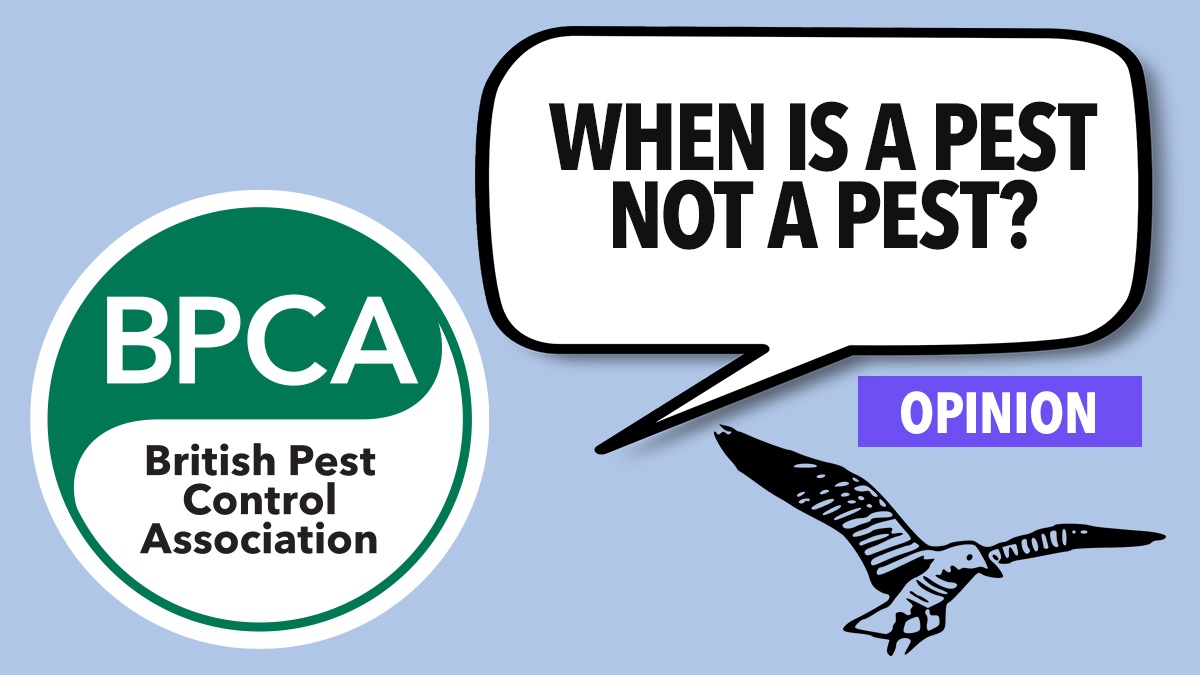Opinion | PPC106
BPCA Marketing manager Scott Johnstone talks through what makes a pest a pest, and gives tips for professionals looking to help protect their toolkits from these challenges.

Never before has our sector’s relationship with animal welfare been so much in the spotlight. Animal rights activists, researchers and legislators have turned their attention to how we control animals that are in conflict with humans.
Pest management is primarily about protecting public health. Too often, animal welfare shouts are louder than the public health voice.
Our sector’s contribution to public health is beyond measure. It’s impossible to calculate the number of illnesses and deaths we’ve helped avoid as a sector over time.
The second oldest trade?
For as long as humans have roamed the Earth, there’s been pest management.
From the largest predators to the smallest insects, pests have come in all different shapes throughout time.
Let’s get back to basics: no animal species is always a pest just because it might come into conflict with people. Some living creatures become pests, for some of the time.
Many of the creatures that we consider pests, such as rodents, flies, wasps and cockroaches, only become pests when they share the same space, affecting our health and well-being.
Nothing is born a pest
To be clear, whatever the pest, it’s only deemed to be a pest in specific circumstances.
Most of the time, the things we determine to be pests are free to go about their own business in their environment, and are not deemed to be a pest as they do so.
‘The only good rat is a dead rat’ is not an acceptable line to take. Views like this do nothing but alienate the public and draw wrath from the regulators.
Being a pest is conditional on whatever risk exists of that living creature causing damage, disease or distress to humans.
A rat can live freely as a rat wherever it chooses, so can a mouse, fly, cockroach, ant, flea or bird. It’s only when its location brings potential harm to us that the word ‘pest’ starts to apply.
Our lifestyles and habits have drawn animals closer to us than we’d like. Undoubtedly, society’s habits need to change; however, until that big picture change happens, pest professionals are the best line of defence.
‘The only good rat is a dead rat’ is not an acceptable line to take. Views like this do nothing but alienate the public and draw wrath from the regulators.
Ian Andrew, BPCA Chief Exec
Pest or pain?
Having said that, what of the balance between pest and nuisance? At what point does an animal transition from nuisance to public health pest?
I’ve been a part of many debates on gulls and where they fit into this scale. Is pinching chips and ice-creams at the seaside just a nuisance, or does this action cause sufficient risk for the gull to be considered a pest?
As pest management professionals, we must walk a fine line on these matters.
Of course, we will all agree that prevention is better than cure. Anything we can do or get our clients to do to proof and manage the problem out of existence has got to be better than continually having to take lethal action.
Going forward, I’m sure that we will face continued attacks on our profession and the methods that we use. We have seen it with glue boards and biocides.
Many members are challenged when carrying out bird work, and I have no doubt that these types of challenges will continue and grow.
Be absolutely clear that you are mindful of animal welfare. But be even more clear that the work we’re undertaking is to protect public health by preventing damage, disease and distress.
Scott Johnstone, BPCA Marketing manager
What can we do?
Remain professional. Be empathetic. Be scientific.
Be absolutely clear that you are mindful of animal welfare. But be even more clear that the work we’re undertaking is to protect public health by preventing damage, disease and distress.
As we progress into 2022, we may not even be aware of some of the challenges ahead for us as a sector.
I am very confident that BPCA, as your trade association, will fight for our members and for the wider sector to protect our toolkit and the invaluable public health service we provide.
Your association. Your view.
It’s the perfect time to join your Association or volunteer your time on a Committee. Members will shape the way we protect our sector. If you have the time and passion to help protect your toolkit (and you work for a member company), contact Ian today.
hello@bpca.org.uk
Source: PPC106